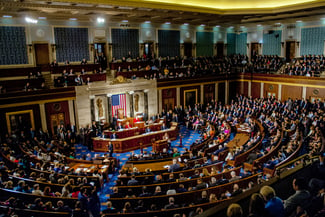 20 years ago, Senators John H. Chafee and Jay Rockefeller put partisan politics aside to introduce legislation that expanded support for youth who were aging out of foster care. This included resources for independent living as well as transition services. They worked to give a voice to older youth in foster care, which helped shed light on the issue and put a human face on the legislation which helped get it passed.
20 years ago, Senators John H. Chafee and Jay Rockefeller put partisan politics aside to introduce legislation that expanded support for youth who were aging out of foster care. This included resources for independent living as well as transition services. They worked to give a voice to older youth in foster care, which helped shed light on the issue and put a human face on the legislation which helped get it passed.
There are a unique set of challenges in foster care for older youth. As they approach legal adulthood the options for support and services often diminish. However, as many of you know, our children need support well into adulthood. It doesn't happen overnight and no 18 year old becomes a self sufficient adult without some guidance.
Last week, the Senate reviewed the 20 year history of the Chafee Act and it's effect on better outcomes for youth in foster care. They also discussed further support to make it better.
Originally posted by: Child Welfare League of America
Chafee 20 Years
Chairman Danny Davis (D-IL) of the Subcommittee on Worker and Family Support opened the session and remarked that foster youth are the experts of the child welfare system. He emphasized that through his engagement with shadow day interns and young people with lived experience how important it is to improve federal legislation and change it to make it better. The purpose of Chafee is to help foster youth transition to adulthood. It can help provide access to college, and other basics such as food and their driver’s license. The Congressman said he is working on introducing legislation to help young people have access to the Earned Income Tax Credit (EITC) and bills aimed at incentive tax credit for businesses that hire foster youth.
[...]
Adrienne discussed the 20-year timeline of the Chafee Act expectations and the purposes behind the changes to strengthening the legislation. Five federal legislation have made critical changes to Chafee program including provisions related to the eligibility, where 25 states, the District of Columbia, and 9 tribes have extended the ages of services from 17 to 23 years of age, shift to independence, increase in funding to $143 million, and changes to the Education and Training Vouchers (ETV). Mark presented on “the legacy of powerful evidence” and looked at the accountability provisions of Chafee. He acknowledged that the Midwest Study helped build the case for the extension of foster care in the Fostering Connections Act in 2008 based on the outcomes of the young people at the critical ages of 17, 19, and 21.
Many states, including Indiana, Virginia, and New Mexico have extended foster care to provide healthcare access, postsecondary support, and employment opportunities for young people aging out of the child welfare system. Christian recommended that all children and youth should receive tutoring services because it was a barrier when he got into college, and he was on a remedial reading level. The extension of care services allowed him to access support to help with his college English course like the state level tax credit for employers in New Mexico helped Micaela get a job at 21 years of age when she lacked traditional training as a young mom entering the workforce. Amy mentioned how the Family First Act extension of independent living services to age 23 is a step in the right direction but there are additional areas of improvements, such as expanding services to age 26 aligned with adolescent brain science research and Medicaid provisions, strengthening the National Youth in Transition Database, and expanding the evidence base work for independent living services. There are still opportunities for improvement and CWLA will be working with members of Congress to ensure that older youth in foster care have the support and services they need to transition to adulthood and beyond.
The Next 20 Years
With more and more data piling up about the need to support older youth coming out of foster care, our sincere hope is that this kind of legislation will continue to draw support. Amidst the current climate of budget cuts and political animosity, it's important to remind our local and national legislators that these programs make a difference. They create more stable adults that can live independently and contribute to their communities.
At Victor, we are dedicated to supporting resource families as they navigate the challenges and unique experiences of the fostering journey. For more information on becoming a foster parent, contact a local foster agency to discover the resources and support they offer. We're here to assist you in any way we can, ensuring that you have what you need to create a loving and stable home for children in your care.
For more information about our programs and how we can help, visit our website or contact us today.
